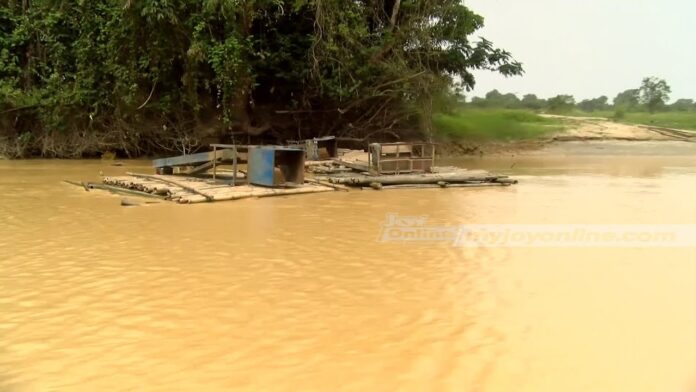The President of the Small-Scale Miners Association, Michael Kwadwo Peprah, has raised concerns over proposals to grant traditional chiefs exclusive powers to combat illegal mining, warning that such a move could create conflicts and increase corruption within Ghana’s mining governance framework.
In an interview with Adom News, Peprah questioned the implications of sidelining Metropolitan, Municipal, and District Chief Executives (MMDCEs) in the enforcement process.
“If chiefs are given the sole mandate to fight illegal mining, what then becomes the role of MMDCEs?” he asked.
“This could lead to increased corruption rather than providing a real solution. We need a collaborative approach involving government, chiefs, and MMDCEs to safeguard licensed miners and ensure effective enforcement.”
He clarified that the association supports community participation in fighting illegal mining, also known as galamsey, but warned that without proper checks, some chiefs might abuse the authority by extorting money from miners.
“Chiefs can be valuable watchdogs, but there must be oversight to prevent misuse of power,” he stressed.
Peprah’s statement follows a strong communiqué by the Concerned Youth of Akyem Sagyemanse—a coalition comprising chiefs, farmers, traditional leaders, environmental advocates, youth groups, and civil society organizations.
The group is opposing illegal mining plans in the Atiwa Forest Reserve, a protected area known for its ecological importance and as the source of key rivers including the Birim, Ayensu, and Densu, which serve over five million Ghanaians.
The group cited grave environmental risks such as climate change acceleration, threats to water and food security, and damage to cocoa-growing regions and the Volta Basin. They issued six demands, including:
-
A complete stop to all mining activities in and around Atiwa
-
The declaration of Atiwa Forest as a National Park
-
Transparent public consultations on any future decisions
-
Investment in eco-tourism, scientific research, and green jobs
-
Strict enforcement of environmental laws and international commitments
-
Government intervention to prevent potential unrest in local communities
ALSO READ:



